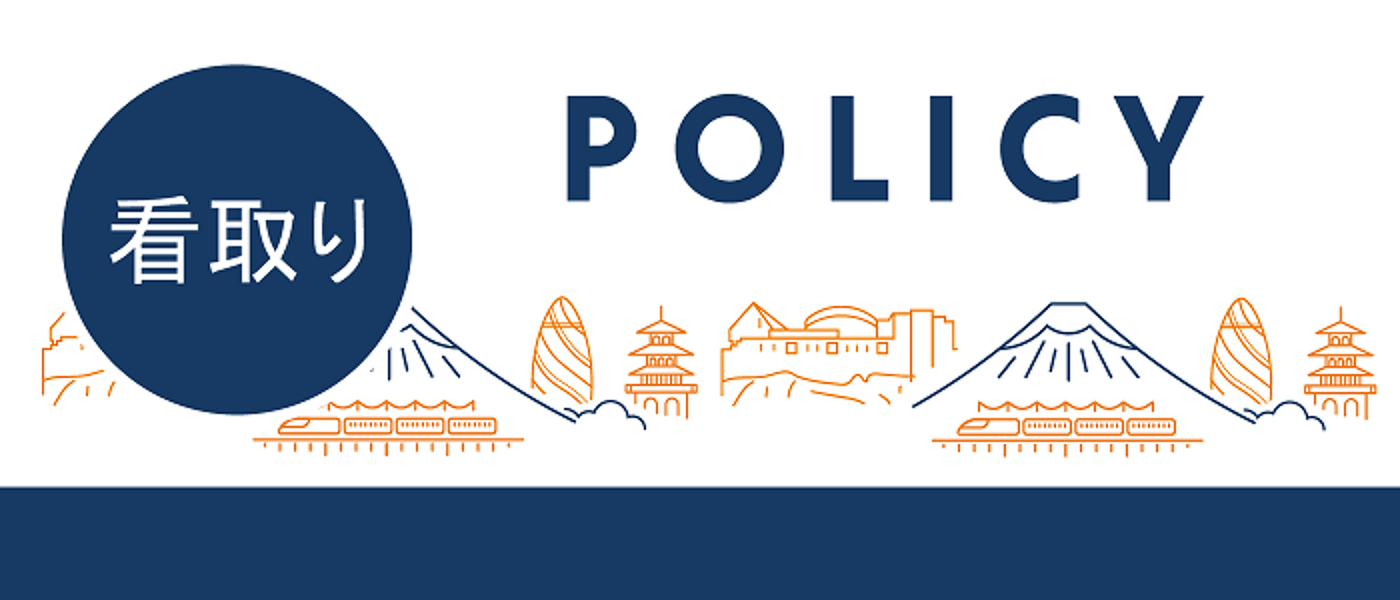Policy
We take policy to refer to all those issues where governments, institutions or other organizations, including non-State Actors, seek to reach their goals. This has multiple forms, more or less wide-ranging, from a national intervention to a programme, a plan, a strategy, an institutional or administrative arrangement, or a procedure. We investigate these diverse aspects of policy as they relate to end of life issues in Japan and the UK. In this context we are also interested in the notion of ‘policy transfer’ as a process by which knowledge of policies, administrative arrangements, institutions and ideas from one system or jurisdiction is used in the development of similar features in another. We are particularly alert to areas where both countries appear to draw on similar policy narratives or approaches to address a particular end of life issue. We will also attend to the potential for cross-cultural analysis to highlight unintended consequences of policy and policy transfer between settings.
Dr Chao Fang and Miho Tanaka lead this aspect of the project.
Policy Brief
Mitori Project Policy Brief - March 2020
England and Japan are confronted with unprecedented challenges and opportunities in the face of population ageing and changing expectations about death and dying, which place heavy demands on health and social care systems.
In the past 12 months, Dr Chao Fang and Ms Miho Tanaka have worked jointly to explore policy discourses regarding end of life care between England and Japan.
An in-depth analysis has been undertaken to compare a set of key policy documents and legislation implemented and enacted in both countries. This policy brief summarises key findings from the analysis to report the commonalities and differences of end of life care, decision-making and bereavement support.
Four key messages have been identified:
1) emphasising individualised care and support
2) improving care access and inclusion
3) supporting informal carers and family members
4) promoting integrated and holistic approaches
The policy brief aims to be valuable for academics, policy-makers, practitioners, as well as the general public. It paints a comparative picture of end of life care policies and laws between the two post-industrial and rapidly ageing societies. This comparison enables mutual understanding, aiming to inform and reshape future policy-making and legislation in both countries.
Dr Chao Fang
Dr Chao Fang is a research associate based in the Centre for Death and Society at the University of Bath, UK. He is currently working on a cross-cultural project exploring emotional loneliness of older people living in retirement communities in the UK and Australia. Chao is also affiliated with the End of Life Care Studies Group at the University of Glasgow, where he has worked on an international project to analyse end of life care issues between the UK and Japan. Chao research interests lie in ageing, bereavement and end of life care. He is also actively involved in a range of collaborative projects about ageing and end of life care issues across the UK, China, Japan and Australia.

Download the Mitori Project Policy Brief - March 2020
Ms Miho Tanaka
Miho Tanaka is a senior researcher at the Japan Medical Association Research Institute where she has worked since 2013. She has specialised in bioethics. Currently, she has involved in the international collaborative research project "Ethical and Legal Issues around End-of-Life Care in East Asia (KAKENHI 18KK0001)". Her current research adopts a comparative approach to investigate end-of-life care policies and laws among both Asian countries and Western countries. It aims to shed light on how health and social care systems could be improved to promote 'good death'. Her research interests are choices in end-of-life, such as forgoing life-sustaining treatments and euthanasia, and ethical and social challenges including ageism, suicide prevention, social isolation and public health policy in emergencies.

